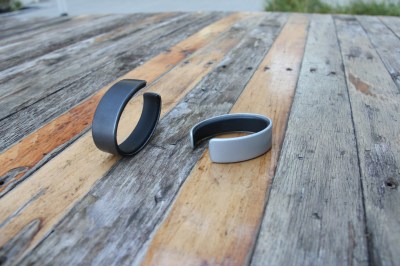
In a world where there’s a new quantified self-tracking device every couple of weeks, the new AIRO wristband is designed to provide data that other hardware makers can’t match. More than just a movement or sleep-tracking device, AIRO is also designed to keep tabs on users’ nutrition and their general stress level.
Unlike the Nike Fuelband, Fitbit Force, and Jawbone Up, the AIRO wristband doesn’t use an accelerometer to track movement, estimating the number of steps that a user takes during the day. Instead it tracks your heart rate to measure exercise intensity and recovery time. It also tracks the quality of a user’s sleep and keeps tabs on a user’s general stress level based on heart rate variability.
In addition to sleep, exercise, and stress, AIRO tracks a user’s nutrition — which might end up being its killer feature. Using different wavelengths of light to detect metabolites released through your bloodstream, the AIRO can detect how much you’ve eaten and how healthy a meal was.
The wristband makers will be raising money by doing pre-sales to start ramping up production. While the device is expected to retail at $199 after the first production run is finished, early backers can snag one for $149. AIRO will produce up to 5,000 devices for that first batch.
That’s the good news. The bad news is that the target date for shipment is next fall — meaning customers could wait nearly a year to get the AIRO that they pre-order tomorrow. The team is hoping to sell at least 1,000 to start production, and they’re capping sales at 5,000 for the initial production run.
Related Topics: daylight savings james spader 9/11 Ozil VMAs
No comments:
Post a Comment
Note: Only a member of this blog may post a comment.